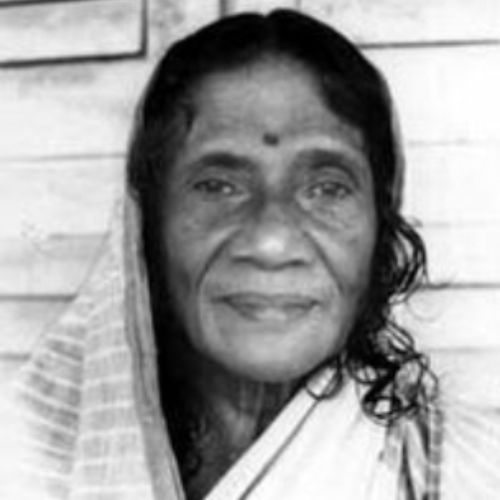Early Life
Malati Choudhury was born on 26 July 1904, in Calcutta to a family of politicians. At the age of 16, Choudhury refused to join college and complete her education. Instead, in 1921, she was joined Visva Bharti in Shantiniketan. It was here that her views on patriotism and the freedom movement developed. They were also deeply influenced by Tagore. Choudhury moved to Orissa in 1927 and engaged in grassroots works for underprivileged communities. Chaudhary was a Marxist, woman freedom fighter who actively participated in the diverse struggles of oppressed communities in Orissa. She was fondly called Numa by those she inspired.
Role in India’s Independence Movement
Choudhury played a vital role in India’s Independence Movement. She was arrested and imprisoned several times (1921, 1930, 1936, 1942) by the British, for her participation in various freedom movement activities.
In 1933, Choudhury started actively participating in the Congress party. Along with her husband, she organised the Utkal Congress Samajvadi Karmi Sangh, the Orissa branch of the All India Congress Socialist Party. Choudhury founded the Post Basic School at Champatimunda, Orissa. In 1946, she set up the Bajiraut Chhatravas to educate the children of freedom fighters and became the president of the Orissa Pradesh Congress Committee. She had a significant impact on freedom struggle movements organised on the local levels.
In 1934, Malati took part in M.K. Gandhi’s padayatra in Orissa. She led the Krisaka Andolan to save farmers from exploitation by landowners and moneylenders. She played a central role in the peasants uprising in Orissa in the 1930s and established the Utkal Provisional Kisan Sabha that worked towards the abolition of the zamindari system.
Contribution to Constitution Making
She was elected to the Constituent Assembly from Orissa through a Congress ticket. However, she resigned from the Assembly that very year to work with Gandhi and because she felt ‘unfit’ for the work. She wanted to continue working on the ground with farmers, Dalits, tribals, and children.
Later Contributions
In 1948, Malati and her husband, along with other freedom fighters, formed the Utkal Navjeevan Mandal in Orissa that worked towards rural development and tribal welfare. She was the President of the Orissa Civil Liberties Committee and condemned the killings of Naxalites.
She strongly opposed state action during the emergency of 1975 which led to her imprisonment. She won multiple awards for her work including The National Award for Child Welfare in 1987, Jamnalal Bajaj Award in 1988, Utkal Seva Sammaan in 1994, and The Tagore Literacy Award in 1995.
Malati Choudhury passed away in 1998 at the age of 93.
- Malati Devi Choudhury: One Of The First Women Marxist Leaders In India | #IndianWomenInHistory by Kavya (Feminism in India, 2019)
- Role of Malati Choudhury and her Associates in Indian National Movement by Janmejay Choudhury (Odisha Review, 2022)
- Malati Devi Choudhury (1904 – 1998) by Priya Ravichandran (15fortherepublic, 2016)

